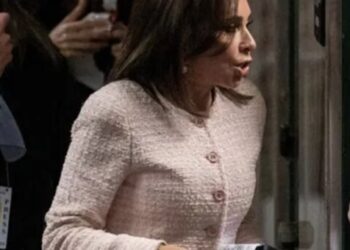Pokémon Pokopia Players Discover Trick to Access Events Early
Pokémon Pokopia players have discovered a new trick that lets you access in-game special events at any time. The time-traveling...
We spent 2 summers testing out living in different European countries. A year later, we’re happily settled in our top pick.
We searched Europe for a new home and eventually settled on our top pick and made the move. Ashley StahmWe...
It ‘doesn’t end well’ for Pirro as she keeps failing to make Trump happy: NYT reporter
U.S. Attorney Jeanine Pirro’s inability to make a criminal case out of President Joe Biden’s use of the autopen ––...
Everything you need to feel hot and be outside this spring
Diotima, Grenada dress, $1,495 Diotima’s spring/summer 2026 show was titled “Bacchanal,” and designer Rachel Scott transported onlookers to Carnival in...
4 Books to Read If You Love Second-Chance Romance
I don’t know about you, but I love a good second-chance romance—without all the toxicity and one-sided longing, that is....
Opinion: Trump, 79, Plans to Win By Having Nothing Left to Lose in His War With Iran
Who knows how, but Donald Trump has gotten out of every tight spot he’s fallen into. From the bone spurs...
The Comedy Central Roast That Was So Brutal It Only Aired Once
Comedy Central has produced 22 celebrity roasts, which used to air on an almost annual basis up until the year...
I’m 26 and earned $25,000 from investing in race horses. It’s helped me network with the world’s most powerful people.
Griffin Johnson owns multiple racehorses. Courtesy of Griffin JohnsonGriffin Johnson owns shares in multiple racehorses.He got involved after growing his...
Can women push the L.A. Marathon into the same league as NYC and Boston?
In 1984, under a punishing California sun, American distance runner Joan Benoit Samuelson ran into L.A. Memorial Coliseum and into...
Of Course Trump Bombed Iran
President Trump’s attack on Iran is astonishing in its audacity, aggression and lawlessness. Mr. Trump ordered strikes in the midst...














